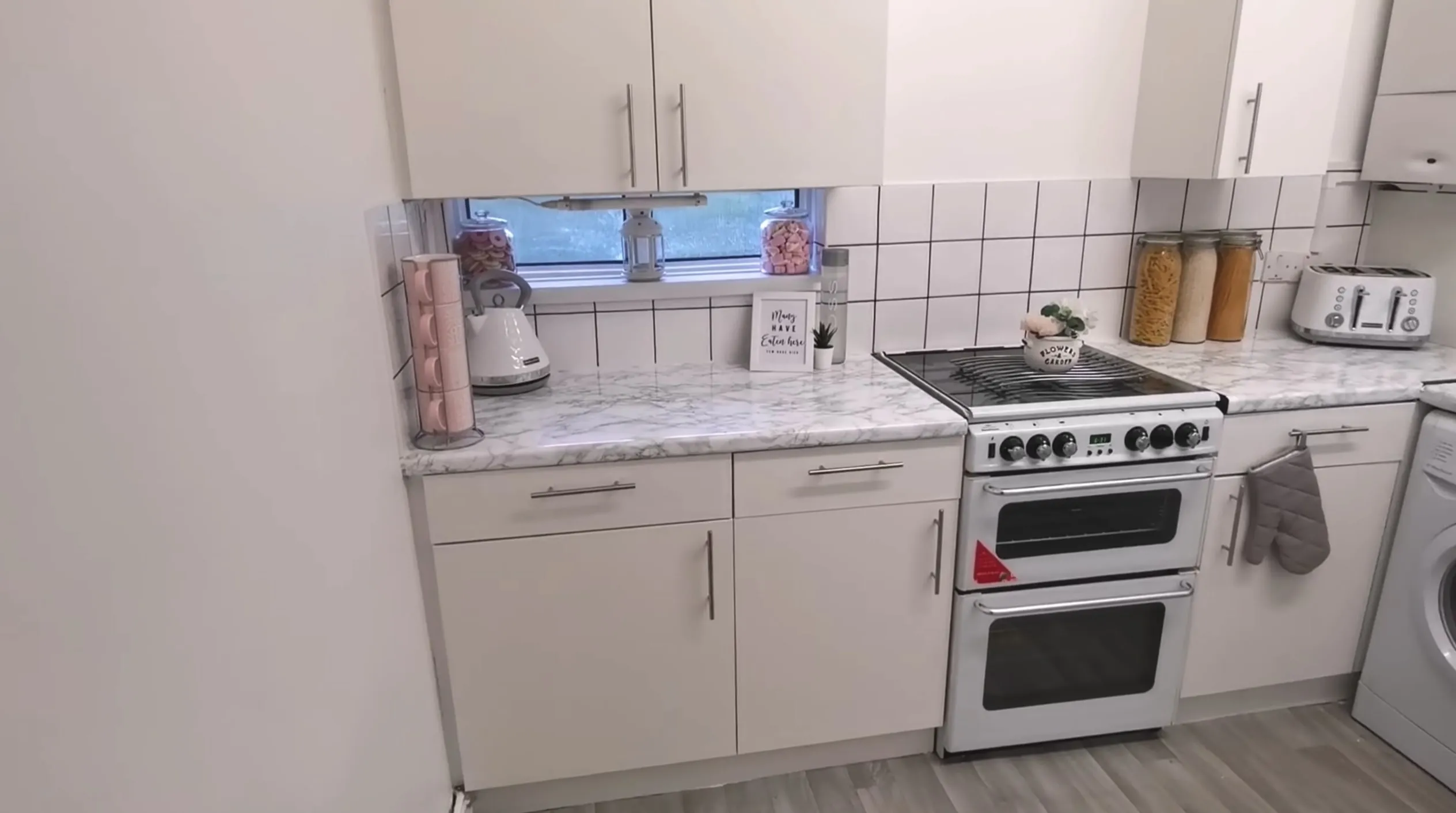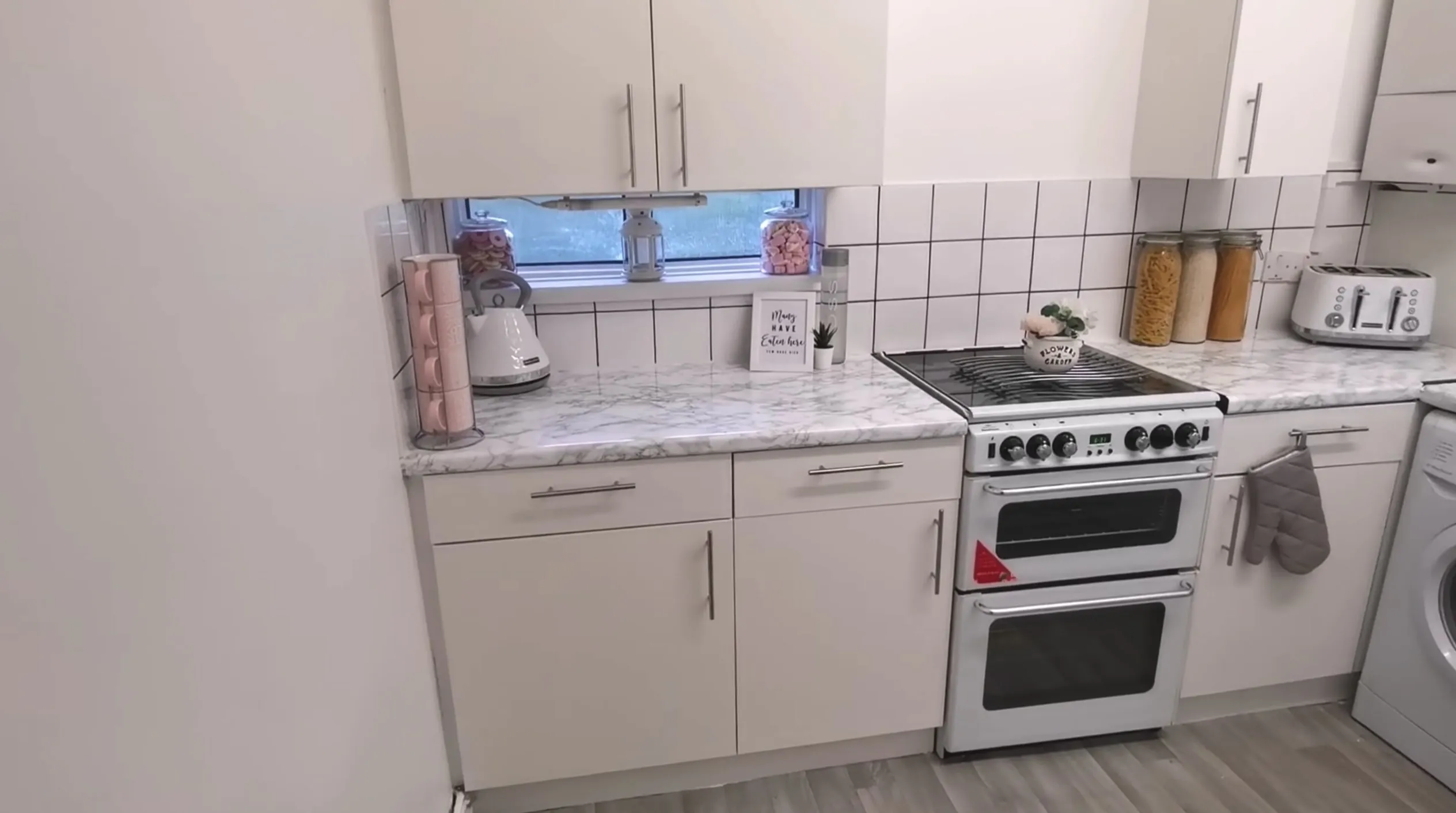This article provides helpful information on how often the council replace the kitchens of social housing tenants and when they can expect to have their kitchens upgraded or replaced by the council.
How Often Does the Council Replace Kitchens?
Councils generally replace kitchens in their properties every 20-30 years as part of planned maintenance programmes.
The kitchen is one of the most used rooms in a home, so regular replacement ensures tenants have up-to-date, functional facilities.
Key Points
- Councils replace kitchens every 20-30 years on average
- Kitchen replacements are scheduled as part of ongoing maintenance
- Regular upgrades keep facilities up-to-date for tenants
Our Opinion
The 20–30-year timeframe for council kitchen replacements seems reasonable given how intensively kitchens are used.
Regular upgrades ensure tenants have well-maintained, usable kitchen facilities.
The council schedules enable planning and budgeting for these important works.
How Often Council Housing Kitchens Get Replaced
If you live in a council house, you may be wondering how often the council will replace your kitchen. Kitchens in council properties are designed to last around 20-30 years before needing a full replacement.
Councils have ongoing programmes to keep their housing stock in good condition. This includes regular surveys every 5 years to assess the condition of kitchens and other elements in each property. Based on these surveys, councils will identify homes needing kitchen upgrades.
Many councils started major kitchen replacement programmes in the 2000s to modernise their housing. By the end of the 2010s, most had offered new kitchens to all tenants. If you moved into your council house more recently, the kitchen is likely newer and may not be due for replacement for another 10+ years.
When your kitchen is nearing 20 years old, keep an eye out for letters from the council about an upcoming replacement programme for your area. The entire process of installing a new kitchen usually takes at least a week and may cause some disruption, so the council should contact you 6 months ahead of time to discuss dates.
While waiting for a new kitchen, you can report any damage or issues with your current kitchen to the council. They are responsible for repairs, and you may get a rent reduction if the problems cause significant inconvenience.
Knowing when to expect a new kitchen can help you plan and make the most of your council tenancy. Check in with your council or neighbours to get a sense of typical kitchen replacement cycles in your area.
Factors Affecting Kitchen Replacement Frequency
The typical 20–30-year timeline for replacing council house kitchens can vary depending on several factors:
- Condition and age – Kitchens showing significant wear, damage or defects will likely be prioritized for a replacement ahead of newer kitchens still in good shape.
- Budget – Council budgets can impact kitchen replacement schedules. Larger budgets allow more frequent upgrades while budget cuts may extend timelines.
- Tenant complaints – Tenants complaining about outdated or defective kitchens may prompt the council to schedule replacements sooner.
- Energy efficiency – Councils are upgrading kitchens to meet energy efficiency standards. Poorly insulated kitchens may be replaced earlier to reduce costs.
- Disability access – Kitchens lacking accessibility features may need early replacement for tenants with disabilities or limited mobility.
- Redevelopment plans – Full redevelopment of an estate could lead to early replacement of kitchens still in decent condition.
- Pilot projects – Councils sometimes run pilot projects to test new kitchen designs, resulting in early upgrades for select homes.
- Individual requests – In rare cases, strong tenant requests and circumstances may lead a council to approve an early one-off kitchen replacement.
While council budgets and conditions drive most replacement schedules, understanding these factors provides helpful context on kitchen upgrade timelines.
Requesting a Kitchen Upgrade as a Council Tenant
As council budgets dictate kitchen replacement schedules, tenants have limited options to request an early upgrade. However, it can be possible in certain situations.
First, make your case to the council housing office. Explain any issues making your current kitchen unsuitable, such as disability access needs or defects causing major problems. Reference any relevant policies on upgrades for disabilities or health and safety issues. Push for an inspection if needed.
Get support from your doctor or occupational therapist if your request is based on medical needs. Their assessment of issues like mobility limitations can back up your request.
Submit any repair requests or complaints through official channels. A long record of maintenance issues can demonstrate the poor condition justifying an upgrade.
Ask about special grants or programs for upgrades. Some councils have special funding for improving disability access, for example.
Be persistent and cooperative with the council. Make your case firmly but calmly. If they deny the request at first, keep pressing your situation through the proper procedures.
While success is not guaranteed, following these steps provides the best chance at getting your kitchen upgraded sooner than the standard replacement schedule if you have a compelling case.
Decent Homes Standard for Council House Kitchens
The Government’s Decent Homes Standard sets minimum criteria for council house conditions. This includes standards for kitchens.
Kitchens should be in reasonable repair, with adequate space and layout. All standard modern facilities must be provided:
- Stainless steel sink
- Available hot and cold water supplies
- Provision for washing machine
- Provision for cooker
- Adequate electrical sockets
- Proper ventilation and extraction
There should be adequate space for food preparation and storage. Cupboards, surfaces and flooring must be in good condition.
Councils use the Decent Homes Standard to determine when kitchen replacements are required. If your kitchen lacks any of these facilities or elements, request an inspection. Reference the standard in arguing your case.
While meeting the minimum standards, some council kitchens can still feel dated. Cosmetic upgrades like new cupboards may require persuading the council beyond citing the Decent Homes Standard.
Regular maintenance should keep council kitchens decent. Report any defects rapidly so repairs can be made before replacement is needed.
Lifespan of a Typical Council House Kitchen
Councils aim to get at least 20 years of service from a kitchen before considering replacement. With proper maintenance, some last 25-30 years.
Factors affecting lifespan include:
- Quality of original materials and installation
- Amount of use and wear
- Regular cleaning and upkeep
- Repairs of any damage or defects
Kitchens receiving heavy use like cooking daily meals may require replacement sooner. Keep on top of repairs and report any issues rapidly to extend the lifespan.
While functional, an older kitchen may feel outdated. Cosmetic upgrades can modernize the look before a full replacement is warranted.
If the kitchen has reached 20 years old, be prepared to argue your replacement case based on missing facilities, defects and repairs needed, not just its age.
With proper maintenance and care, you can enjoy a quality council house kitchen for many years before replacement is necessary.
FAQ
When should the council house be replaced?
Council house kitchens should typically be replaced every 20-30 years.
When is the best time to replace windows in council houses?
Windows in council houses are usually replaced every 20-30 years depending on their condition.
When does the council re-plaster walls?
The council will re-plaster walls if it is needed due to damage or wear and tear.
Does the council install a bath for tenants?
The council may install a bath for tenants with mobility issues who cannot use a shower.
Conclusion
In summary, the key point from this article is that the council typically replaces kitchens in council houses every 20-30 years as part of their ongoing maintenance and upgrade programmes. The council has schedules for replacing various elements of council houses, including kitchens, to ensure they remain in good condition for tenants.


